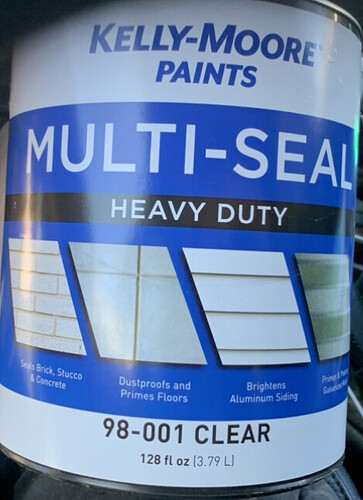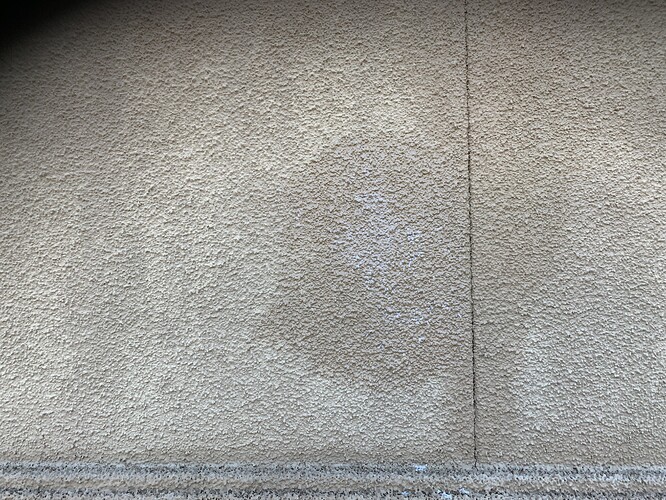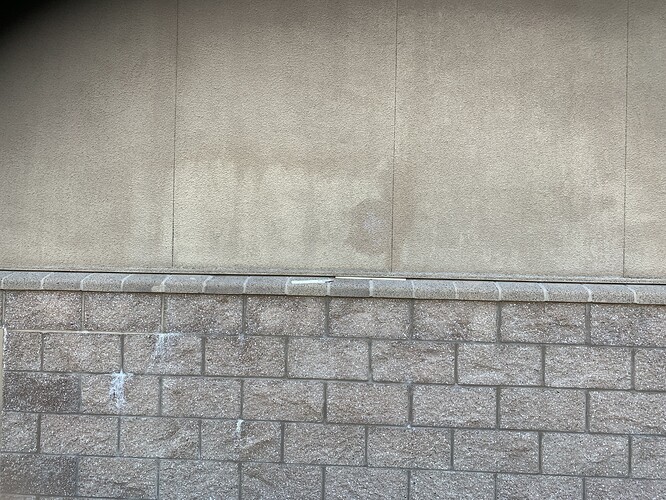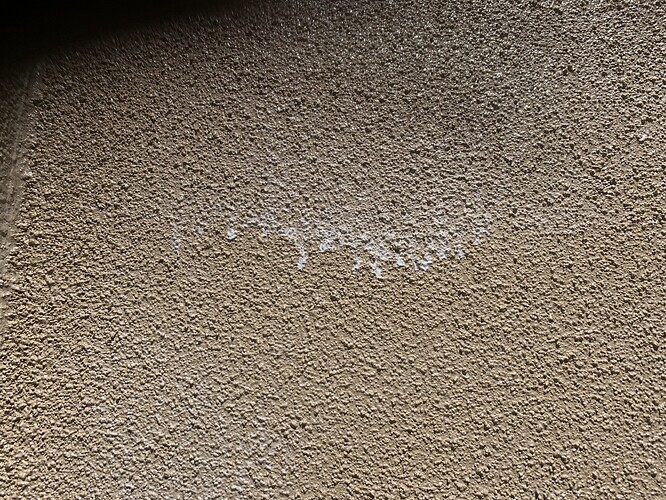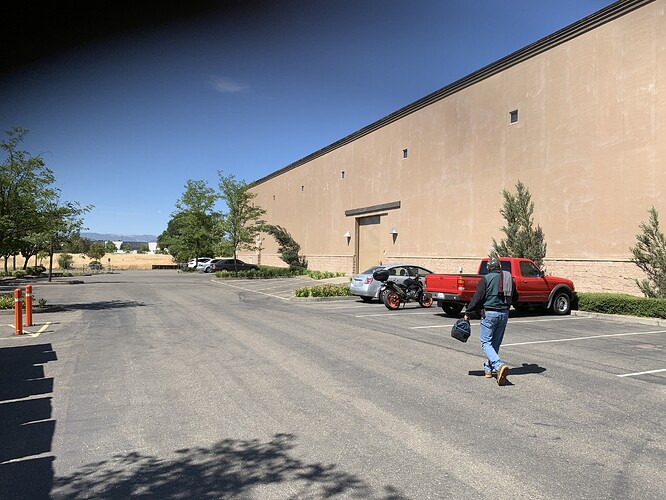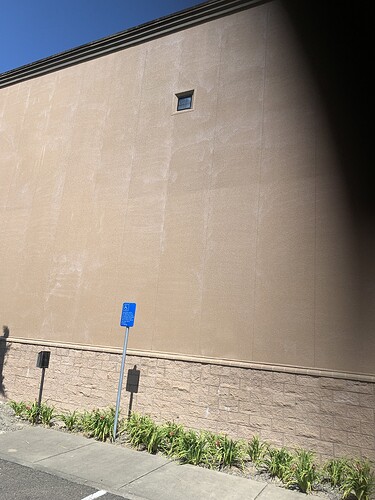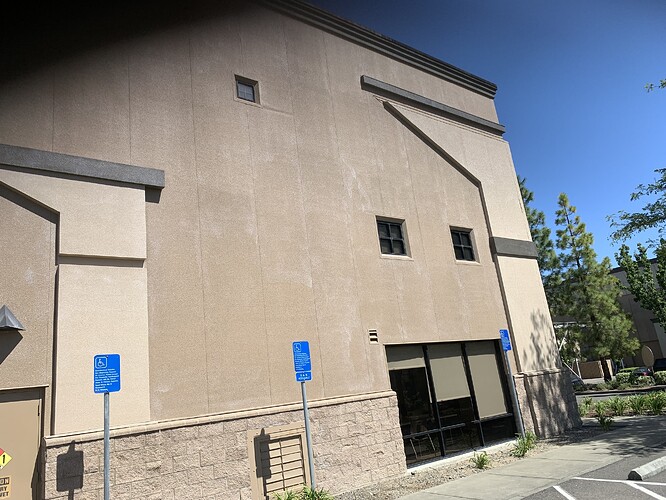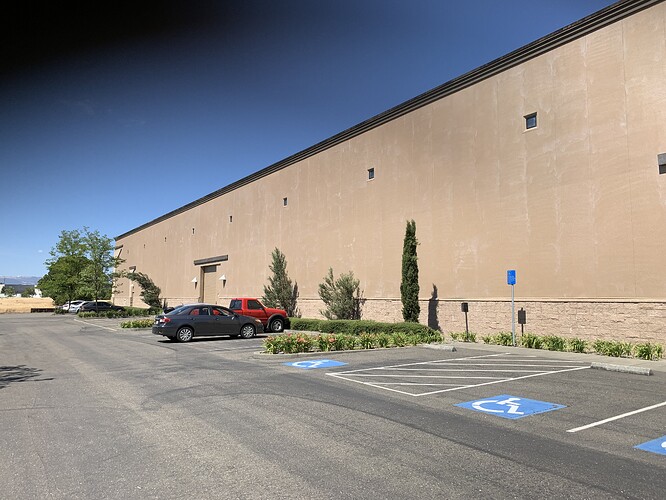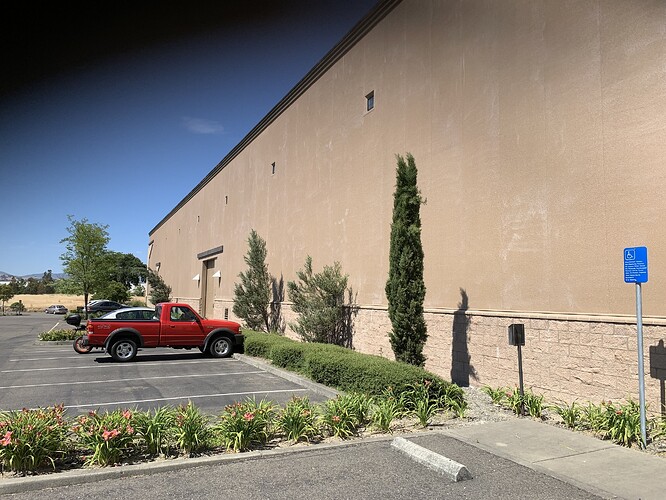A lot of time you just have to experiment to find out what works. Way to hang in there.
make a strong batch and use a pump sprayer to do a test spot and if that works, throw together a 12v system if you don’t have one
Go buy a sprayer. Nice chunk of change but painting a wall is easy. This is exactly what happened to me. Even once you remove the oxidation (if you can) those wand marks are still going to be there where it was blasted off. The sprayer will pay for itself once you start staining decks/painting. But I’m afraid you’re going to waste a lot of time and chemicals trying to get something that isn’t possible now. Cut your losses and paint it or call insurance. Plus that building looks like it’s very public/noticeable so it just looks bad for your business having that be up there longer and you coming back and trying to fix it over and over again. Just my 2 cents. I hope I’m wrong and you get it fixed
Hey all, I found an incredible solution! First off though we did try a test area the other night before we left and we did it with literally just diluting BC cleansol 4 to 1. I don’t think it’s oxidation because I didn’t do anything except for brighten up the paint considerably and you could still see the darker wand marks. I called my old neighbor buddy who owns a painting business. He put me in touch with his Kelly Moore rep (local paint shop chain) Who met me out at the job site right away. He did a sample of this stuff called Multi-Seal. Basically it’s a sealer but it makes the building look wet and stays like that. My pricing through my buddies paint business discount is only $95 per 5 gallon pail and each gallon goes between 400-500 ft.² as it is a very thin and light weight product. It is absolutely incredible and it will only cost me about $600 to cover 9000 ft.². I considered buying a paint sprayer for almost $1000 but found out that a local equipment rental company rents sprayers for only $85 per day. I had a client come out and look at it after the stuff dried and he was blown away by how good it looked, as was I. We even had another small area that we tried one restore on and it actually turned it a little bit blue. This stuff brought it right back to its original color! I’m going back on Saturday with 30 gallons of it and paint sprayer in my bucket truck to apply it to the entire wall. There will be no cars in the parking lot that day and the Kelly Moore rep told me that I don’t even have to mask anything because when it hits things like the light fixtures that are a faded black it will actually bring them back to looking new! He says painters use it on oxidized surfaces because it actually binds to the chalky residue and it makes things look like it was freshly painted. It can be used as either a primer or a finish coat. I’ll post a completion pic of the entire wall when done. For now here is a picture of the test area we did and the product I’m using. In the picture it’s the circle that is darker and before applying it it was very light like the part around the circle. In the middle where it looks white is because it was still a little wet there. The white disappears after it’s fully dry.
Interesting - sounds like a great find.
Glad you found a solution. Good luck with it. I was afraid this was going to turn into a Rubber scrubber type thread that never ended, lol.
There’s still time
There is…but ya better hurry up we’re at 2835 posts.
So have you done the side of building with it yet?
Yep I did it yesterday! I bought all seven 5 gallon pails that Kelly Moore had on hand plus the 1 gallon sample the guy gave me. I ended up needing every last drop but I was able to get everything completely covered using a rented paint sprayer (Titan) with a 413 tip. It worked incredibly well like magic but it was still wet when I left basically two dark outside. I’ll get pics of it dried tomorrow and post them.
OK, a day later. Did it work?
Yes and no. It would have been perfect, except I am not a painter and failed to take one thing into account, the sealer needs to either evaporate or be rolled in if put on too thick. There are many areas where it was applied too thick and it dried before it evaporated or soaked in. It was also not a very warm day. If I back rolled it (9000 sf would of added quite a bit of time but I should of done that, or did it while the sun was on the wall) and or sprayed less of it on it, it would not have these white lines. Now I have to deal with this ![]() Anyone have any ideas on a good product to dissolve the excess sealer? I doubt even pressure and hot water would work, but if it did that would be great… maybe I’ll try that first, but want a backup plan. I may need to remove the excess and reseal the areas where the sealer gets removed (hopefully that’s even possible)
Anyone have any ideas on a good product to dissolve the excess sealer? I doubt even pressure and hot water would work, but if it did that would be great… maybe I’ll try that first, but want a backup plan. I may need to remove the excess and reseal the areas where the sealer gets removed (hopefully that’s even possible)
Did you do it in direct sun light?
I had a sealer on stone do that to me once… It looked milky… it was getting pretty warm that day and it was becoming stringy like cheese on a pizza lol …
At this point it seems like you keep trying to do anything BUT paint the wall. If that sprayer had been putting out 36 gallons of paint then you’d be done by now. And now you’re going to try and remove some of it somehow, and reapply the same stuff that already doesn’t look very good? I’m really not trying to be mean, sometimes you just gotta bite the bullet and do things the hard way
thats why you foam
DIY spray painting on that scale is usually a disaster.
Call a professional painter to do the job , learn from your mistakes and move on.
My 2c
What would something like that cost to repaint Aussie?
Will paint even bond well to the sealer that’s on there now?
@Racer I really hope it does… Hopefully it’s paintable
At this point I’d let a professional painter take over…
All money is not good money. Some things are best left alone. If it does align with your services, don’t do it. You don’t want to promise something you can’t fully deliver on.
